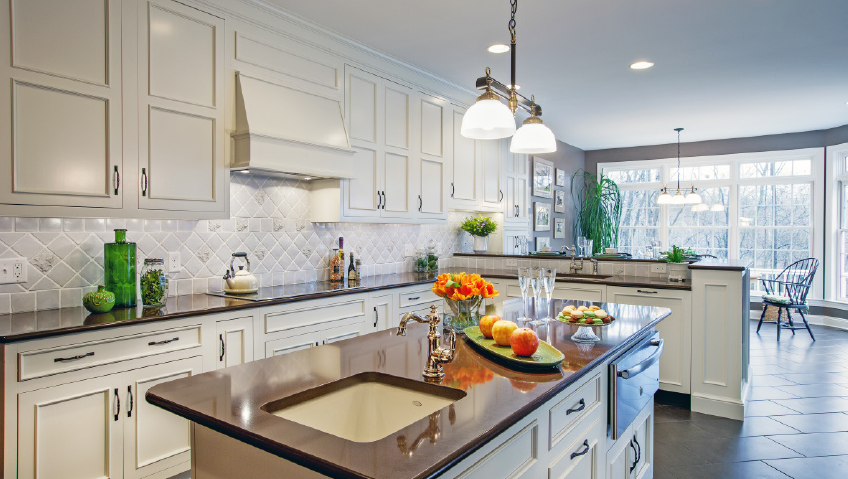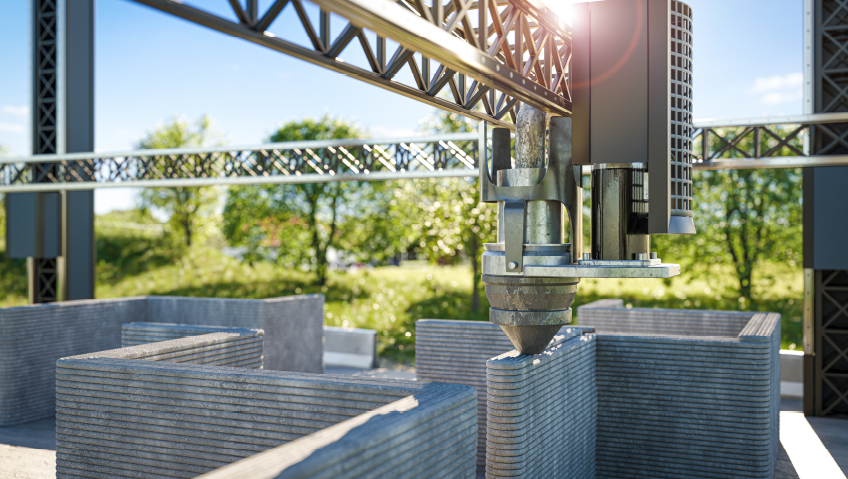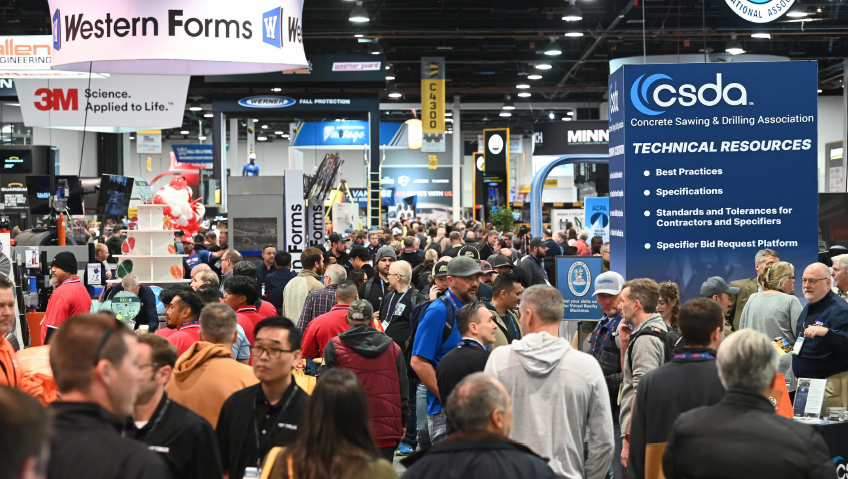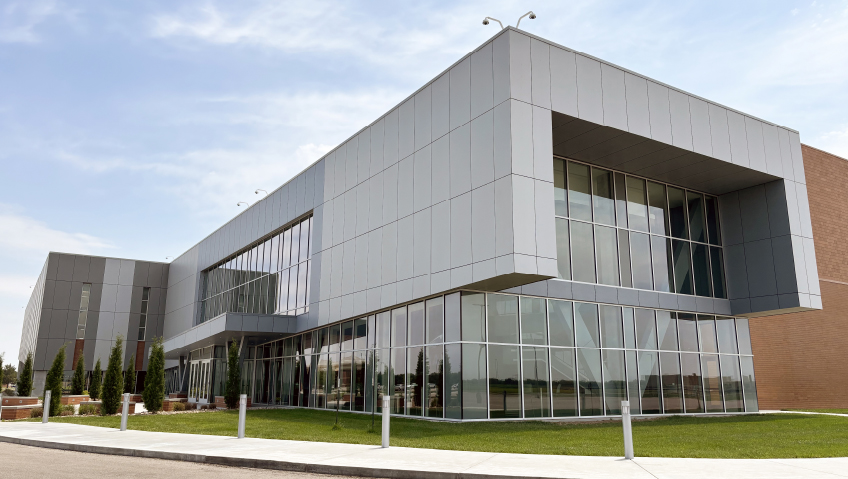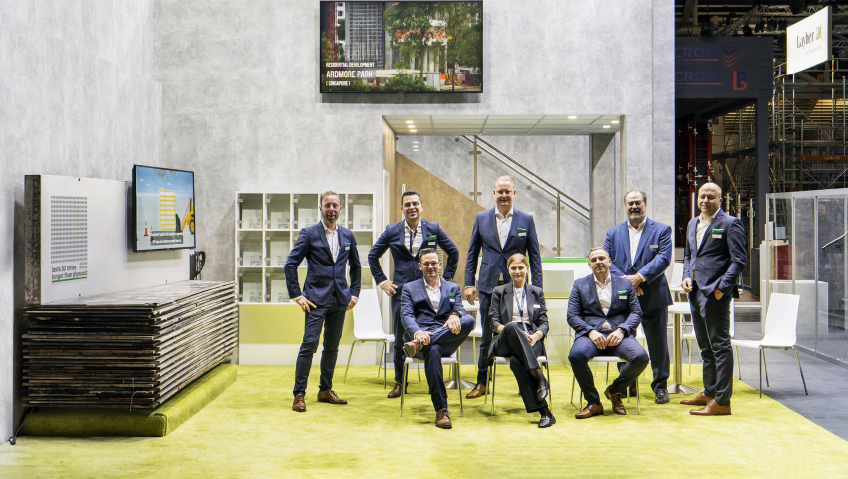Family-owned for over 60 years, Bishop Cabinets is a hometown manufacturer that has steadily expanded its market reach while maintaining the core values upon which it was founded. The company’s commitment to a simple ideal has been unwavering: to be the trusted source of exceptional cabinetry, framed and frameless, at a reasonable price point.
That’s a straightforward enough ambition, but the difference has been in Bishop Cabinets’ day-to-day commitment to continuous improvement. For more than half a century, Bishop Cabinets has continued to invest in its ability to meet all its customers’ functional and aesthetic needs and stay on the leading edge of trends while offering unvarying service and support.
With a wide range of offerings which includes a variety of styles, paints, stains, and finishes, Bishop Cabinets manufactures semi-custom framed and frameless cabinetry, the latter gaining great popularity in Europe and now becoming equally popular in the United States. While its frameless line is not new, Bishop Cabinets is relaunching it this fall featuring the latest styles and trends, including a white oak offering that will tempt its customers with a high-end option.
“We’re now doing white oak, and we have plain sliced available, and we also have our rift cut door option available. Those are the two most popular. Rift cut is more expensive and out of our normal price range, but we felt like we should offer it,” says President Jeff Gulledge.
Vice President Eric Williams also notes, “Within the white oak offering we have a quick-ship semi-custom product line, and we have a longer, more custom lead time product, so we have a lot of flexibility within the new offering.”
To capitalize on the ever-changing market where trends evolve every 12 to 18 months, Bishop Cabinets uses any lulls in demand to invest in product development and process improvements, hiring key talent to take these advances to the next level.
“In the past, we didn’t have anybody to put a real focus on the frameless cabinets, so we brought someone on board to not only revamp our offering in frameless but also to go through our manufacturing process,” Gulledge says, a confirmation of Bishop Cabinets’ reputation for hiring well and developing and utilizing talent to the fullest.
As part of its revamp, Bishop Cabinets is also investing in major process improvements with a new enterprise resource planning (ERP) system and significant investments in new equipment and capabilities.
“We’re installing a completely new ERP that runs our manufacturing business and since our frameless cabinet offering is smaller than our framed—simpler and with fewer components—we’re launching it in September in the frameless operation,” Gulledge shares. “In the next 30 days, we’re looking to spend half a million dollars on machinery that will improve our product line and increase some efficiencies in the production process.”
Currently, the leadership team is meeting with its production staff to ensure that the new machinery will address their needs. This employee buy-in is an important part of any investment decision the company makes to ensure that the money is well spent.
Protecting institutional memory is also an important part of investing, making sure that legacy knowledge isn’t lost through attrition. Recently, two employees with over 75 years of collective experience retired, and the unexpected passing of an employee was a stark reminder to the leadership team of how easily and suddenly trade secrets can be lost.
“It’s made us realize that we need to take some of the knowledge that our long-term people have and put it on paper, so we can reference it when somebody new takes their place. We’ve done that in the past, but we just never kept that updated. But it’s something that we’ve got to do based on the product that we’re building today and not the product that we were building three to four years ago,” Gulledge explains, and this resolve should go a long way toward the training of new hires and maintaining the value proposition the company offers.
Despite experiencing a slower-than-average market over the last several quarters relative to the massive growth experienced during the post-pandemic years of 2022 and ’23, the company is still as busy as can be. On the back end of that demand, Bishop Cabinets’ strong financial position enabled it to shift gears when business slowed, invest in its capabilities, and so position the company to grow its impact in the markets it serves across the eastern half of the U.S., with an emphasis on its southeastern territories where there’s a growing demand for frameless products.
“When we’re not busy with production sales, we’re very busy with innovation, updates, and changes, implementing a lot of these new things and updates because we didn’t have time to do that in the last two to three years, and then with the slowdown you recognize that parts of your business need attention,” says Williams.
While the slowdown in the market wasn’t a major blow to Bishop Cabinets, the team understands that that might not be the case for others and extends a helping hand where possible, which goes a long way to securing relationships for the long term. When Bishop Cabinets talks about being a family-owned company, that familial bond extends to its employees, distributors, and customers, all of whom play an important role in the company’s success.
“When we see slowdowns in the market like we’ve seen since September of last year, it allows us to partner with our dealers when they experience issues like building delays. This gives us a chance to strengthen those relationships as we work together for favorable results,” says Gulledge.
At the core of Bishop Cabinets is a deeply rooted Christian faith and this ethos is the foundation for the company’s dedicated service. The support the team offers before, during, and after the sale continues to set it apart in the market.
For Williams, “Long-term relationships with our dealers and our reps matter to us as we’re able to partner with them and help them through some of the struggles they may be experiencing.”
Through its various process improvements and investments, Bishop Cabinets continues to bolster its capacity to serve its growing market, and in doing so it is doubling down on its culture, which is the thread that runs through all its successes. Today, the company is doing even more to diffuse that culture through its relationships with its distributors and customers alike—take the website overhaul that better meets them where they are through stronger digital ties.
“That culture is a part of the company,” Gulledge says. “It’s amazing; some of the team members we’ve added have been like, ‘Man! This culture is unlike any I’ve ever worked in. I’m so happy to be here.’ It’s collaborative and everybody working together is part of it. It hasn’t changed, but it’s part of making these improvements and part of everybody wanting to have some buy-in and have that ownership mentality. Let’s grow and develop and innovate together.”
Looking ahead, as the company builds on its capabilities and adds to its fleet of equipment, the need for space is ever present in the minds of the company’s leadership, who must balance the cost of space with the need.
The ERP will certainly alleviate some of the strain, but it continues to be on the minds of management. The goal is to get back to steady, sustainable growth through the company’s strategy of evolving its offerings, its capabilities, and its roster of talent. There’s really no choice: Bishop Cabinets must do this to remain on top of industry trends while staying steadfast as a partner to distributors and customers across its ever-expanding market footprint.
Indeed, Bishop Cabinets is committed to continuous improvement to ensure it remains operationally efficient and delivers value long into the future. “This is what we continuously do,” says Williams: “The continuous improvements of fit and finish; of the machinery, the personnel, the daily long-term goal of continuous improvement; that’s all a mindset to reach our goals.”
This sentiment, the one at the heart of the company, is succinctly captured by Gulledge with a quote from Mark Twain: “Continuous improvement is better than delayed perfection.”

